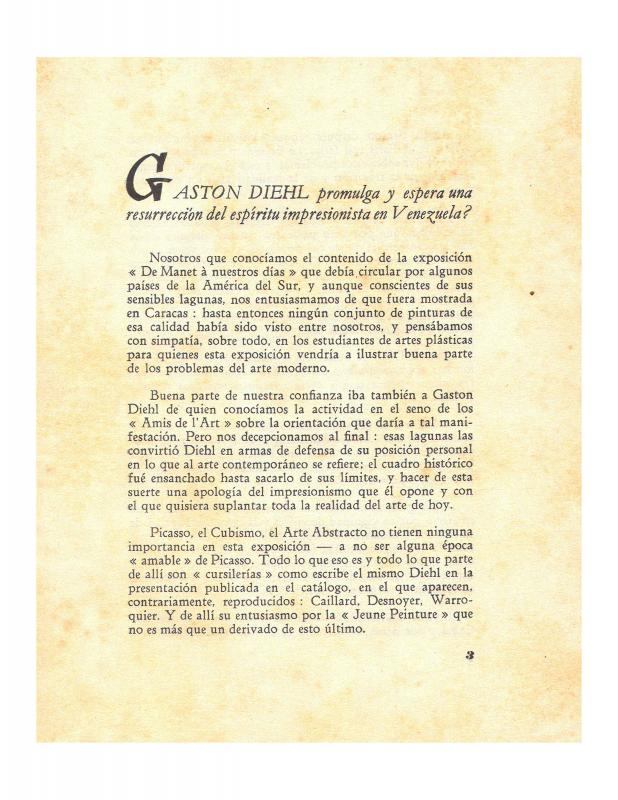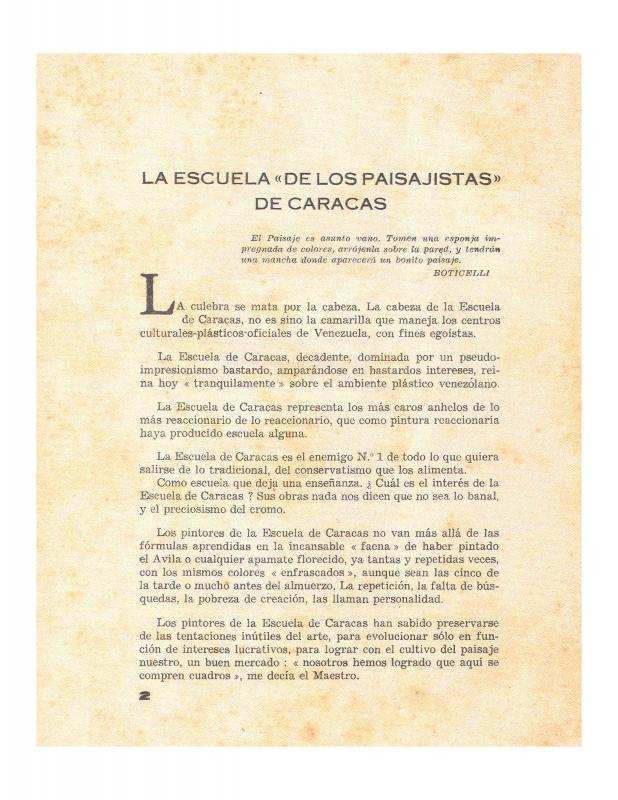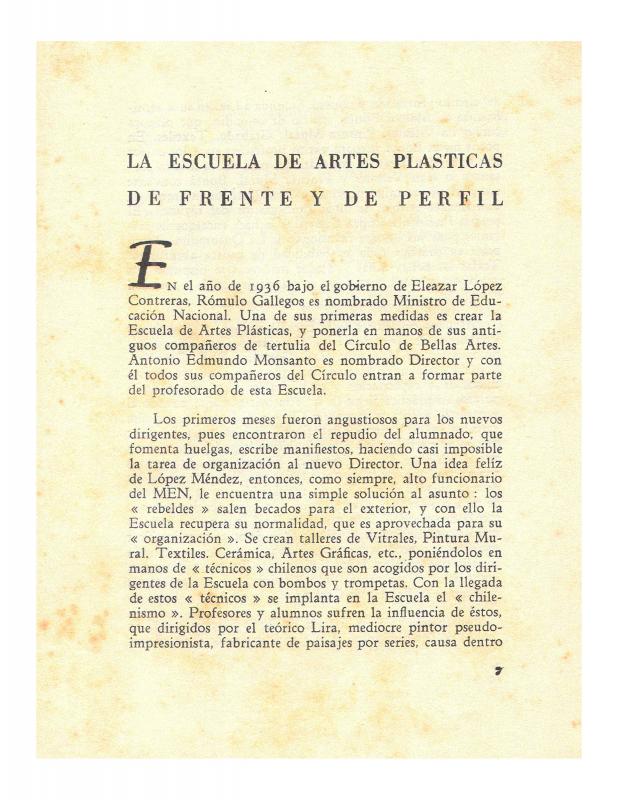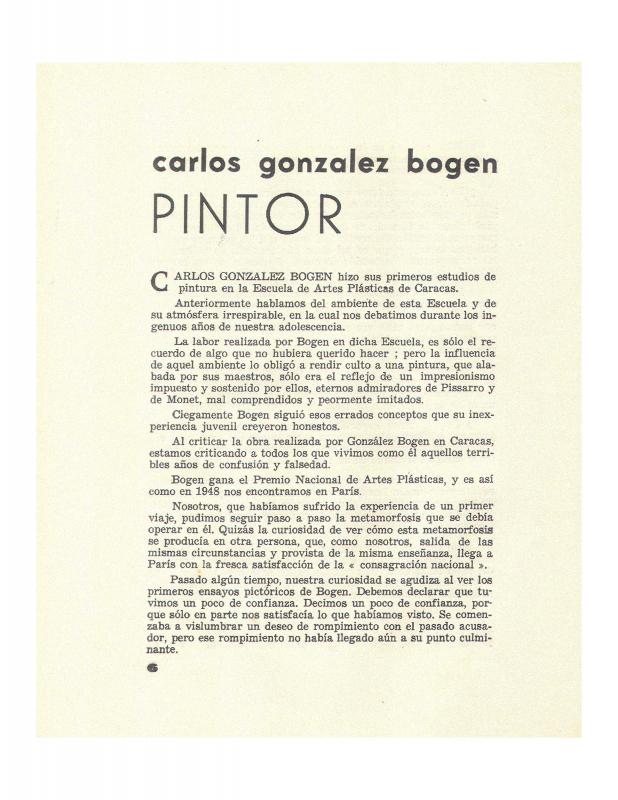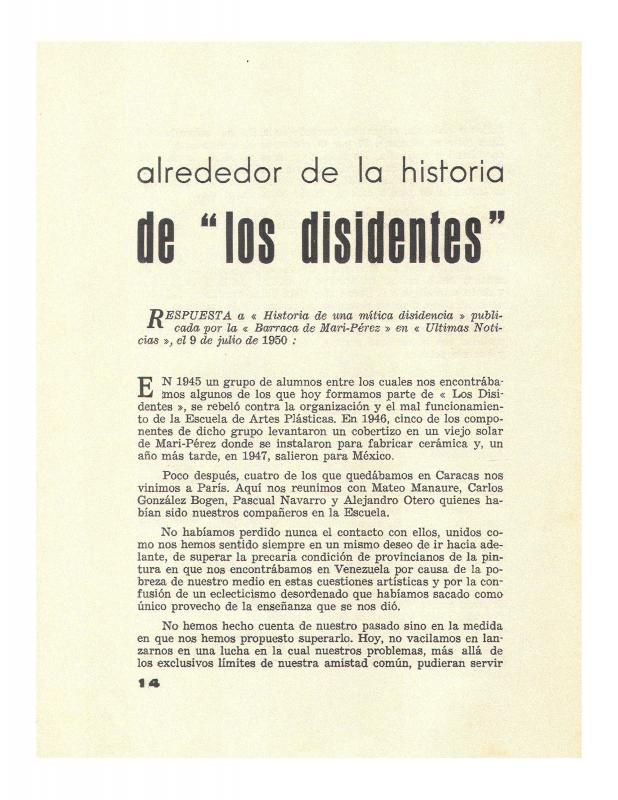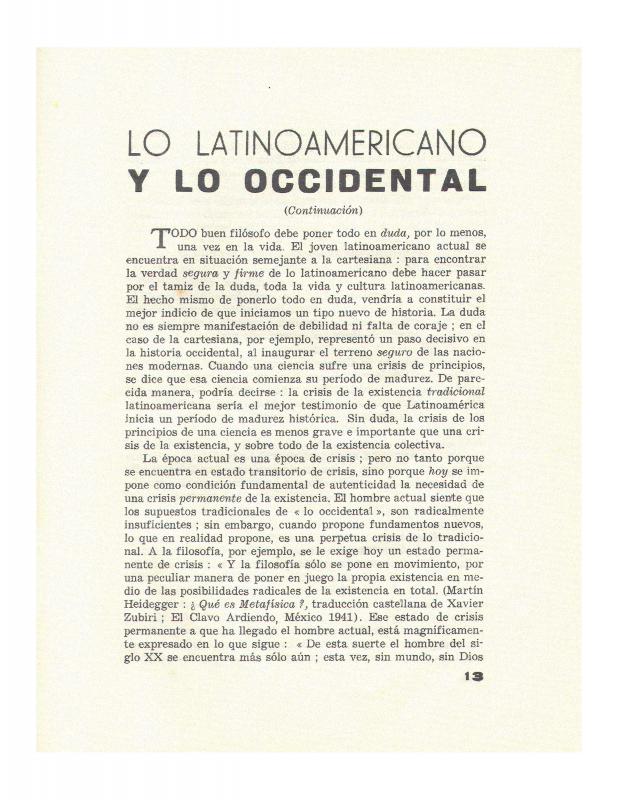Los Disidentes was a group established in Paris in 1950 by a group of Venezuelan artists and writers that lived in the city between 1945 and 1952. From the French capital they intended to fight against the educational model taught at the official Escuela de Artes Plásticas de Caracas, derived mainly from traditional landscape art and nativism, specifically. True to their name, Los Disidentes intended to renew Venezuela’s traditional and academic art beliefs through the assimilation of European abstract art values. Among the artists in the group was Narciso Debourg (b. 1925), the author of this text, as well as Alejandro Otero [see doc. no. 813625], Pascual Navarro, Luis Guevara Moreno, Carlos González Bogen [doc. no. 813695], Mateo Manaure [doc. nos. 813569 and 813583], Perán Erminy [doc. no. 813463], Rubén Núñez, Dora Hersen, and Aimée Battistini, in addition to then-philosophy student J. R. Guillent Pérez [doc. no. 813478]. They were joined, subsequently, by other Venezuelan artists in Paris such as Armando Barrios, Miguel Arroyo, Oswaldo Vigas, Omar Carreño, Alirio Oramas y Régulo Pérez. They published a magazine, naming it as the group, Los Disidentes, which produced as far as five numbers, it being the primary source for disseminating their ideas.
In the present article, Debourg reveals, with great honesty and simplicity, the struggles and contradictions confronting Latin American artists trying to assimilate the values of the European abstract culture. It is understandable, as his country, Venezuela, gave great importance and maintained traditional landscape and figurative art for many years, in part due to the ostracism suffered during the long dictatorship of Juan Vicente Gómez (1908−35), the political instability emerging after his death, and the emergence of World War II. That is the reason why Debourg, like many of the other young Venezuelan artists arriving to Paris, experiences amazement and disappointment with their provincialism.
Beyond the identity problem suggested in this text, Debourg expresses an anxiety that lies in his perceived traditional and cultural shortcomings when compared to Europe’s evolvement, one that he considers of “great intellectual development” which he wishes to “acquire,” revealing at the same time the clash between these two cultures. This element is consistently expressed in the premises of the Los Disidentes movement and the reason they felt compelled to drastically eradicate any vestige of their traditional education, seen to be “defective” by them. According to the text, and as Debourg admits, this is the cost that must be paid in order to adhere to any of the abstract trends. This line of reasoning appears to be, in fact, a way to clarify and justify the situation more to himself than to the others.

